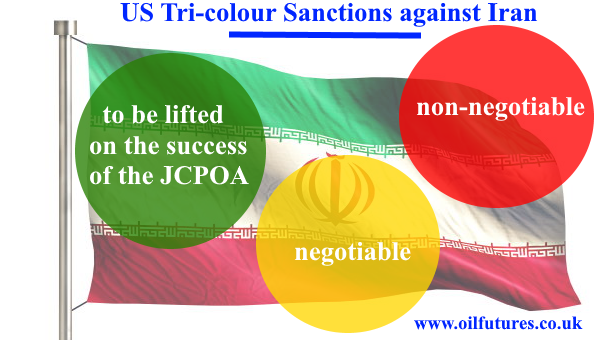The negotiators from Iran and the rest of the
signatories to the JCPOA, 2015 nuclear deal, are back in Vienna, the Austrian
capital, to resume the negotiations, which was halted a week ago in light of
Christmas holidays.
The Iranian team projected a sense of optimism this
time while Iranian foreign minister went as far as summing up the progress so
far, to say ‘a deal is within reach’ according to the Iranian media.
Iran, however, according to the minister, does not
want to reach the deal under threats from the West.
He was referring to the remarks made by the British
foreign secretary and the US Secretary of State that the negotiations would not
go for ever, implying resorting to the unspecified ‘other options’ that President
Biden often referred to – in the event of failure.
The latest change over the talks must be looked at
while taking into account the latest developments on political front in the Middle
East: just before the talks ended for the Christmas holidays, the Crown Prince
of the UAE made a visit to Iran, despite the prevailing frosty relations
between the two nations; after the visit, by coincident, the Israeli prime
minister made a visit to the UAE just after that and the Crown Prince was seen
whispering something to the ears of the latter at some point.
While deepening the
mystery, meanwhile, Naftali Bennet, the Israel Prime Minster announced
yesterday that his country would go ahead with new settlement plans on the
Golan Heights, the Syrian territory that Israel annexed in the six-day-war in
1967, still holding on to it on the grounds of security.
It comes against the backdrop of the news that the US was not prepared to provide Israel with tanker-refuelling aircrafts that the latter asked for or asked to expedite the delivery - up until 2024. Moreover, Israel voiced its displeasure over opening a Palestinian Consulate in Jeruselum that the former considers as its capital.
It is well-known that the US opposes the new
settlement plans until a deal is reached between Israel and the Palestinians. In
this context, some political analysts believe that the Israeli announcement as
a form of snubbing the US for bracing itself for giving the diplomacy yet
another chance over the JCPOA, rather than sticking to rigid deadlines.
It also implies that the US – and its allies – are not
ready yet for seeking ‘other options’, despite the blatantly obvious Israeli
displeasure over the diplomatic moves that could ultimately result in sanctions
being lifted – at least the ‘green’ band.
Iran has been raising its military rhetoric for the past few months, as if an attack on its nuclear facilities was imminent by its arch enemy, Israel or the US. The counter measures included Kamikaze drones, ballistic missiles and myriad of high-powered petrol power boats.
At the height of the tension, what the role of the
Crown Prince of the UAE played in his recent trip to Iran remains unclear. Did
he try to bridge the gap between Iran and the signatories to the JCPOA in order
to avert a military crisis on his doorstep? It remains to be seen in the coming
days at the talks in Vienna.
The US sanctions against Iran fall under three
categories. If an agreement is reached, the green sanctions will be lifted
immediately and the yellow sanctions are negotiable for future agreements. The
red sanctions, however, are going to stay regardless of the progress made in
other areas.
If there is a success in the negotiations in the
end, its impact will be widely felt in the crude oil markets across the globe:
Iran wants to sell as much oil as possible in order to compensate for the past
losses; the risk of supply crunch will simply disappear with markets having
enough of the commodity to meet the growing demands.
All in all, Iran may not let the latest opportunity fade
away at a time when it needs petro cash to revive its struggling economy.







